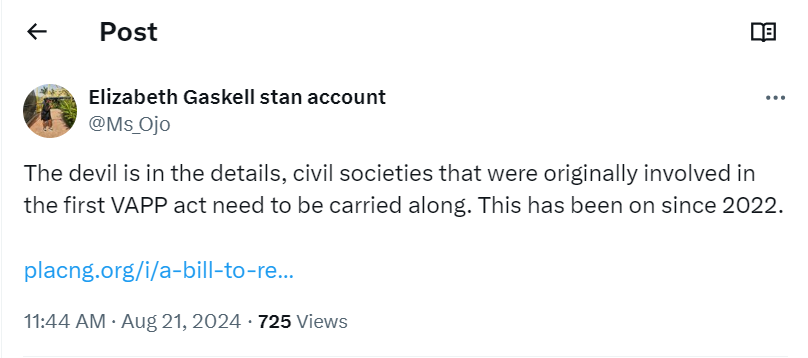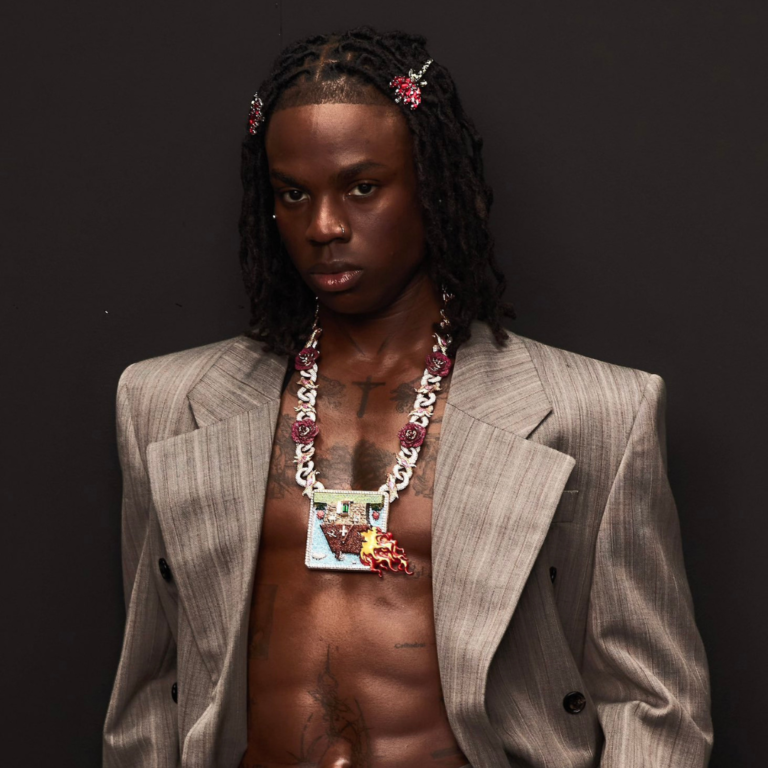
Roughly two weeks after Nigerians campaigned against the “Counter-Submersive Bill,” which has now been withdrawn, the Nigerian Senate is back with another shocker: a bill to repeal the Violence Against Persons Prohibition (VAPP) Act.
The VAPP Act, passed in 2015, aims to safeguard individuals from gender-based violence, including rape, domestic abuse, spousal battery, intimidation, physical injury, coercion, female circumcision or genital mutilation and harmful widowhood practices. This legislation was enacted in response to the alarming surge in violence, particularly targeting women.
About the repeal
Senator Jibrin Isah of Kogi East District presented this new bill sponsoring repealing the VAPP Act 2015. The first proposal of the bill was in April 2022. The Senate kept the bill under review and returned to the Senate in July 2024. After passage of the bill for a second reading, the President of the Senate, Godswill Akpabio, referred it to the Senate Committee on Judiciary, Human Rights and Legal Matters for further legislative action and asked for a report back in six weeks, which coincides with today, August 21, 2024.
Senator Jibrin argued that the compensation provisions for victims of violence were insufficient, and given Nigeria’s current economic conditions, proposed increasing the fines and imprisonment penalties in the Act to serve as a more effective deterrent.
According to Senator Jibrin, these are his primary concerns about the Act:
Although it’s just getting on the radar, its implementation suggests an overhaul of the law introduced to curb the widespread issue of gender-based violence (GBV) in Nigeria, leaving zero protection for women and children.
The law is gender-inclusive, criminalizing physical, emotional, and sexual violence. It adopts a broad definition of rape, offers compensation to victims, and recognises that men can also be victims of sexual assaults.
In his lead debate, the bill’s sponsor, Senator Jibrin Isah, claimed that “the bill seeks to eliminate violence in private and public life, prohibit all forms of violence against persons and to provide maximum protection and effective remedies for victims and punishment of offenders and related matters in 2024.” He also stated that provisions are “inimical to the realisation of its objective.” The senator argued for a complete reform of the act, saying that violence alone isn’t sufficient to prove abuse and violence; intent must also be established.
The senator also distinguished between “absence of consent” and “consent obtained by fraud, undue influence and other unlawful means.” This stance suggests that the passed law was deceitfully presented. In his bill, he states, “In the face of opposition to its obvious gender-biased nature, the promoters resumed it, tinkered with some of its provisions, introduced seemingly gender-neutral language, and successfully obtained passage.”
This bill undermines the hard work of activists and women groups that pushed for the VAPP Act to be implemented across Nigeria’s 36 states, and regresses on basic human rights law.
What can you do to get this bill recalled?
As stated earlier, this proposal has passed the second hearing, leaving its implementation to the consensus of the third hearing. Nigerians must prevent the bill from reaching the third reading. They are advised to call, text, and email their senatorial representatives to do this. To do this, go to shineyoureye.org to find the details of current Nigerian representatives.
What Nigerians are saying
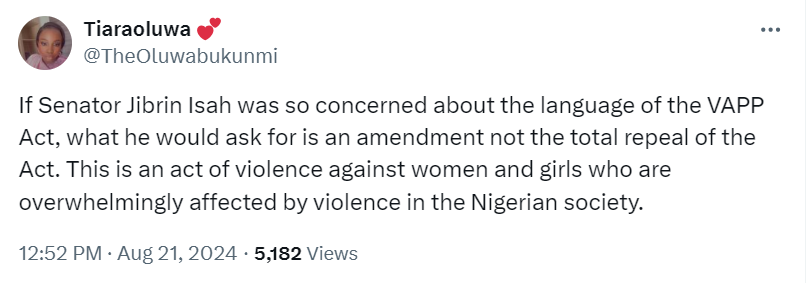
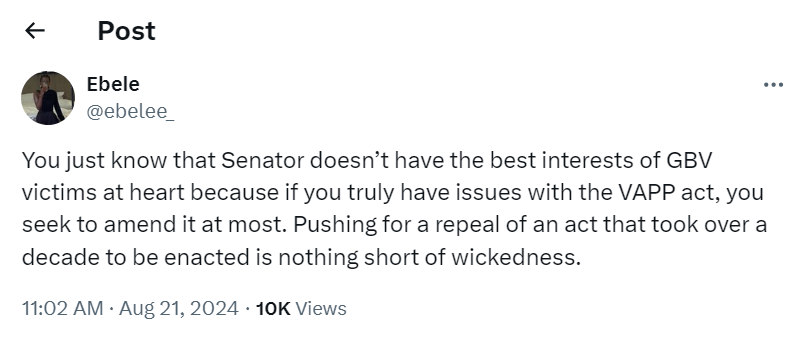
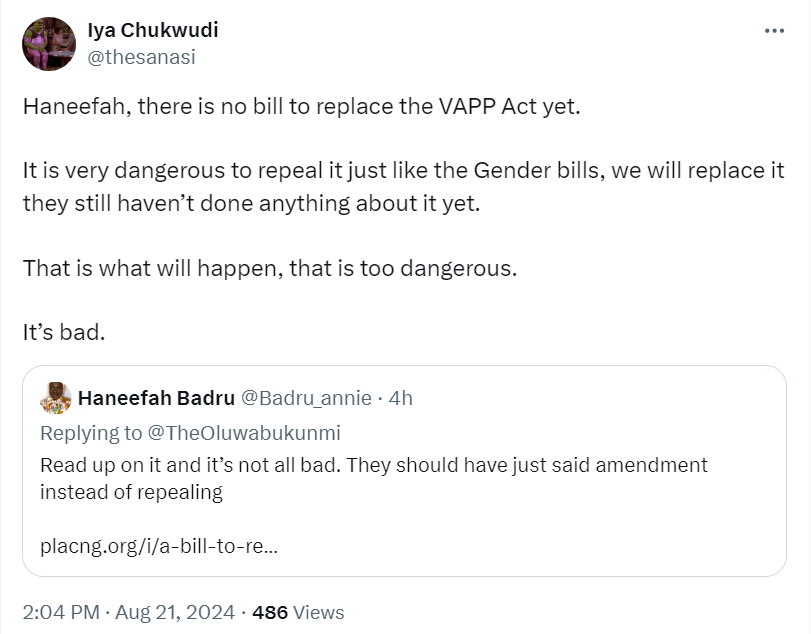
This is a developing story.

